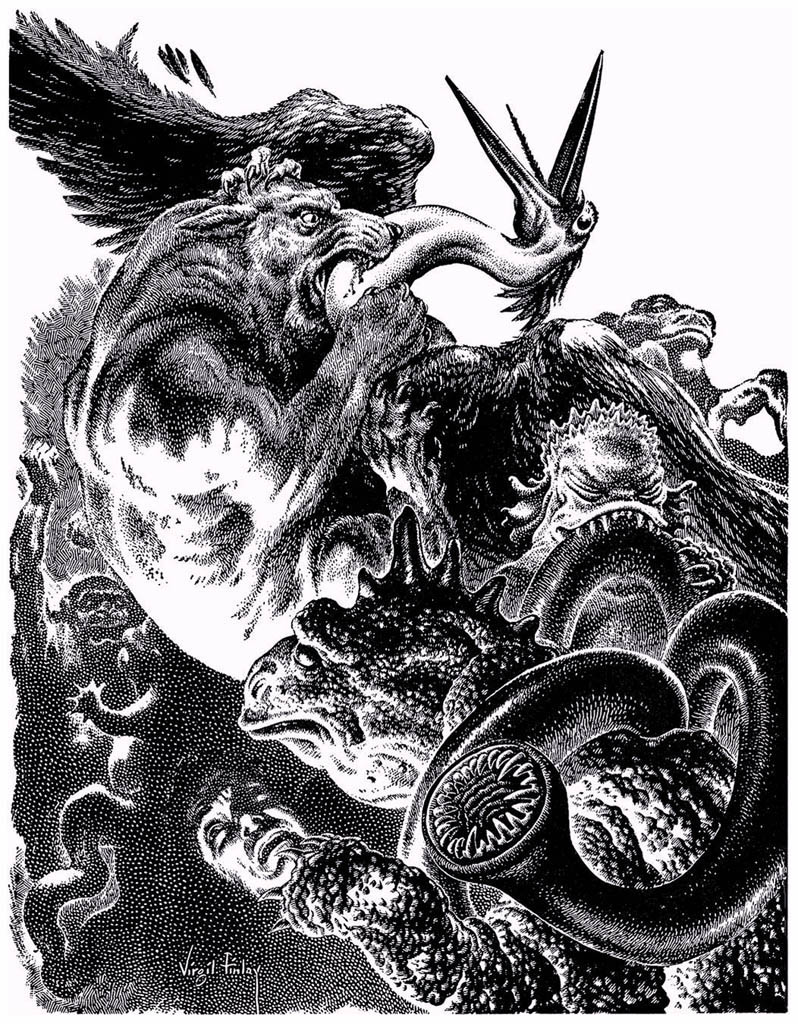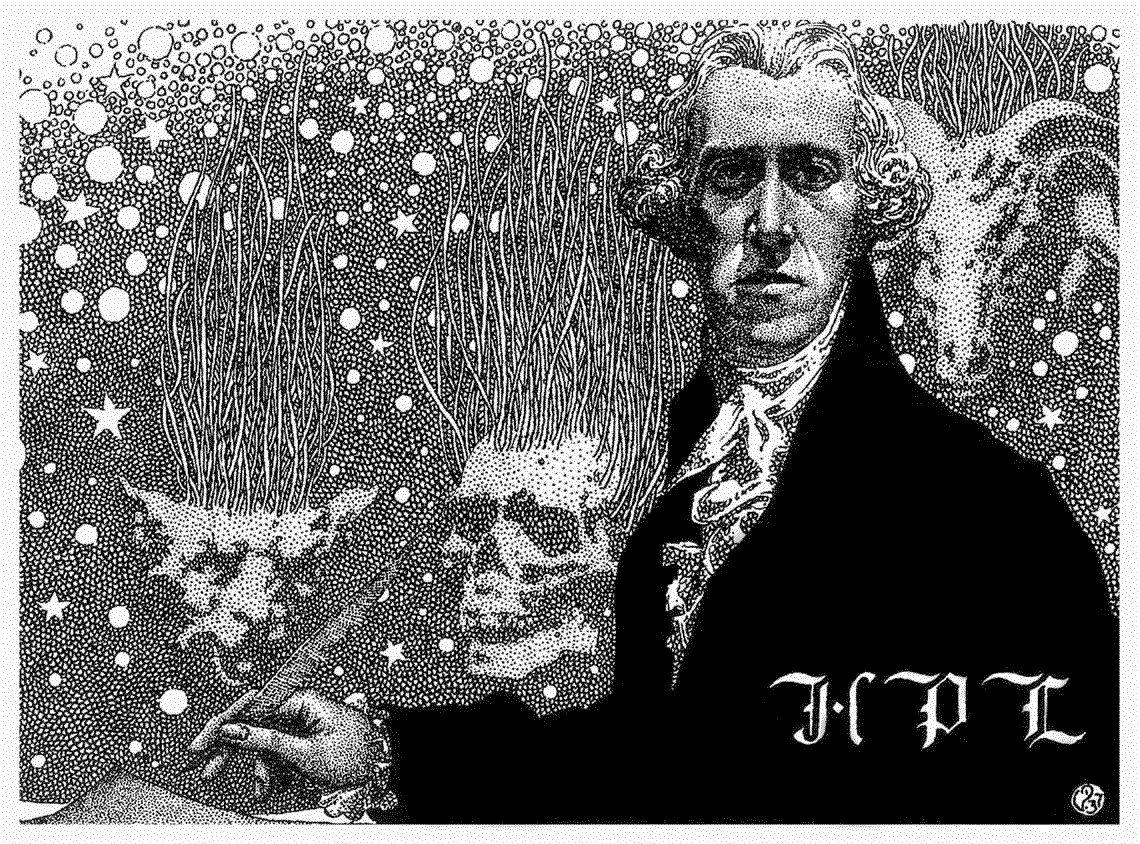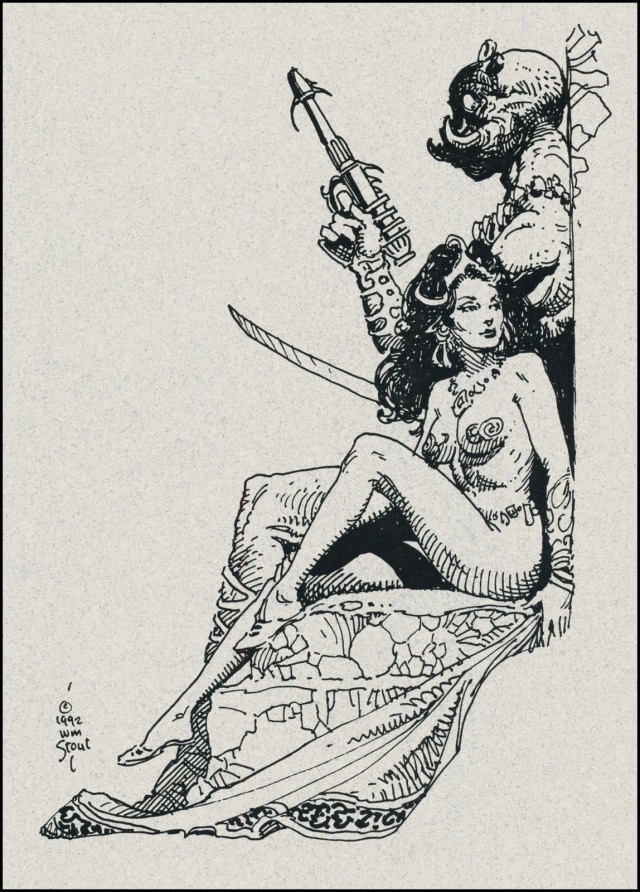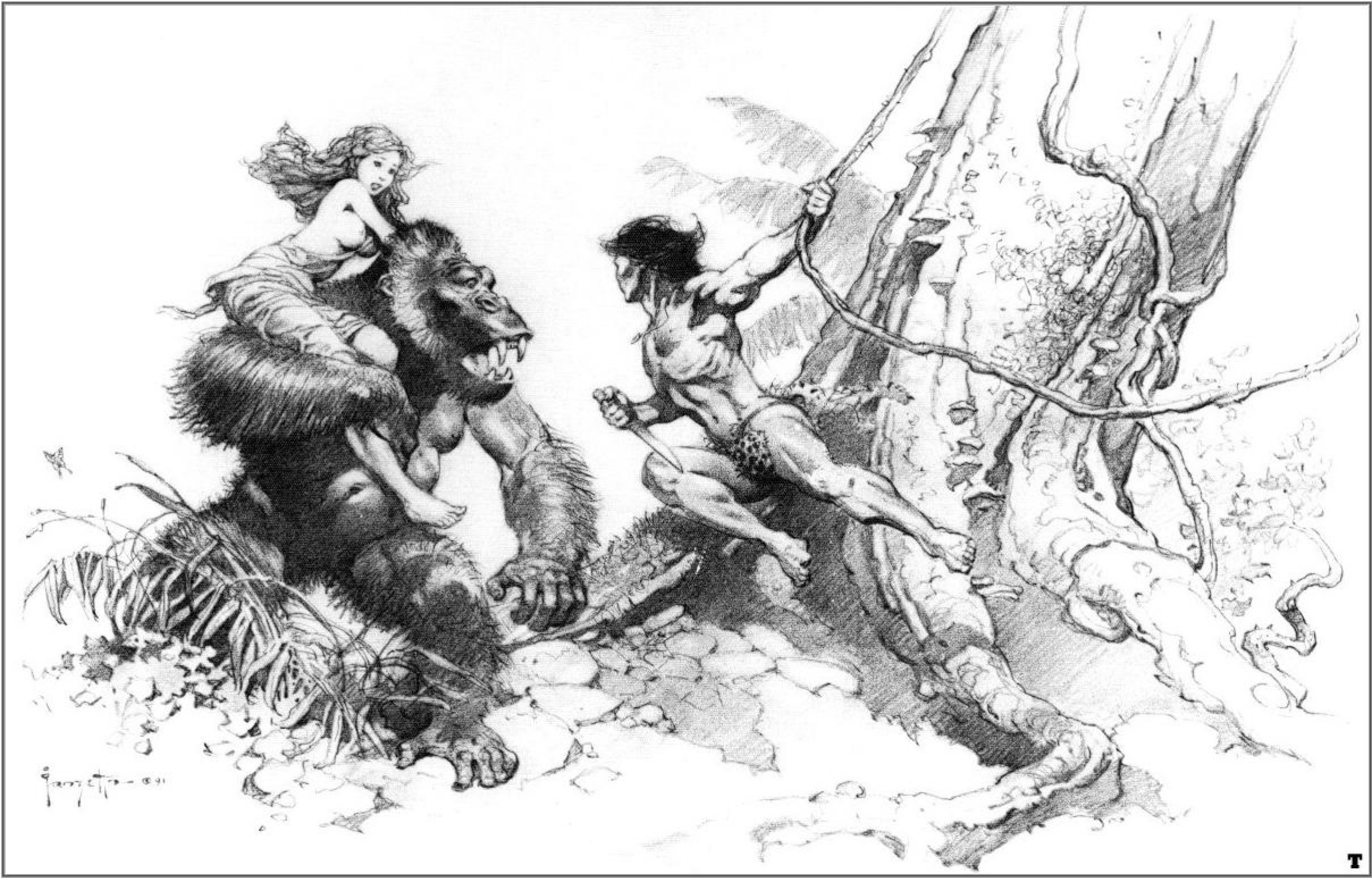

The weakest of Howard’s creations in my opinion, can be a bit of a ‘Mary Sue’ at times (most obviously in the way women throw themselves at him; note Howard was beginning to write ‘spicy stories’ concurrently with Conan – these being softcore erotica, written for men, in the pulp adventure mode), albeit less coarsely written than his earlier fantasies. Still , in spite of my complaining about the characterisation, Conan is still excellent, and the action scenes are unmatched to this day. The movies and comics simply do not get it and are no substitute – read the originals!
(Although the original movie isn’t bad as it’s own thing and the more recent Jason Momoa vehicle had one good scene).
You should read…
Xuthal of the Dusk/The Slithering Shadow
Gods of the North/The Frost Giant’s Daughter
Beyond the Black River
The Hour of the Dragon/Conan the Conqueror
Kull segues into Conan – the Conan story ‘The Phoenix on the Sword’ is a rewrite of the Kull story ‘By This Axe I Rule!’ – and represents an earlier iteration of the barbarian king vs. civilised degenerates motif found quite explicitly in Conan. I like the dreamier, more fantastical atmosphere of Kull (so did H.P. Lovecraft so I’m in good company here) – but towards the end of Howard’s life he was growing more interested in writing historical fiction and Conan reflects this. See in particular ‘Beyond the Black River’ which is a barely concealed story about Texas.
My favourite Kull is The Skull of Silence/The Screaming Skull of Silence, which isn’t out of copyright. The Shadow Kingdom is probably the best out of those available.
More strictly a historical series. Features an English Puritan who finds himself in Africa due to his unyielding moral convictions, where he encounters various creatures long since driven out of Europe (he also runs into various overcivilised/degenerate types of Europeans, continuing Howard’s favourite theme) which he must stab with his rapier (rapiers are cool).
Red Shadows is excellent. Wings in the Night is also very nice.
Bran Mak Morn is a Celt living under Roman occupation (Howard was of Irish descent and he will tell you all about it). Worms of the Earth is an interesting part of the Howard canon since Mak Morn, wishing revenge on the overcivilised/degenerate Romans, makes use of the titulars, the remnants of an even more overcivilised/degenerate race, to get it, and so this represents a far more ambivalent take on some of Howard’s core themes.
There are plenty of other Howard stories vastly superior to everything written in the past sixty years but I have to stop making recommendations eventually, ie. now. Unfortunately The Grey God Passes is still under copyright but you should read that too. Alright I’m actually stopping now.

Better known, and persistently misunderstood, as a horror writer (it’s not about big scary monsters or the universe not caring about you, you dimwits, it’s about realising your preconditions are entirely false), Lovecraft also wrote a few straight-up fantasies as part of his ‘Dream Cycle’. I think these are interesting compared to Howard as they represent a polar opposite ethos, that of the horror vs. the action writer; Lovecraft’s Randolph Carter is strangely passive as he is dragged between adventures (sometimes quite literally; eg. his encounter with the Nightgaunts).
I’d also like to add that Lovecraft’s modern detractors are inevitably little better than maggots crawling through his corpse; they’re wholly dependent on his lasting influence and prodigious imagination while deluding simultaneously themselves they’ve conquered and surpassed him.
The Carter stories are probably the most important Dreamland fantasies.
This is Lovecraft’s best known stuff (largely in my opinion, due to the efforts of Sandy Petersen, who wrote the Call of Cthulhu role-playing game). Includes the big-name stories, including The Call of Cthulhu, The Colour Out Of Space, and The Shadow Over Innsmouth, which are well-regarded for a reason.
However, for my personal favourites I’m going to select a few deeper cuts: The Mountains of Madness (well alright, this is one of the big ones too. But it’s really good!) about the discovery of an ancient city in Antarctica; The Thing on the Doorstep, about a shut-in who gets a girlfriend, and Nyarlathotep, a rather interesting story about the role technology of technology in social decay, especially given the times we live in.
Of this lot, mostly horror tales, I will recommend the early and somewhat dreamy Dagon, a nautical adventure obviously quite influenced by Poe’s The Narrative of Arthur Gordon Pym of Nantucket and William Hope Hodgson’s Boats of the Glen Carrig. In a similar vein is The Outsider, a surreal journey through a seemingly abandoned castle (which made quite an impression on me as a pre-pubescent youth for it’s supremely lonely atmosphere). For something a little more macabre/gory I can also recommend The Rats in the Walls, which is about unpleasant and unguessed family secrets and takes a different tack on one on Lovecraft’s favourite themes, ie. heritability.

I won’t write so much about Burroughs as frankly he’s a bit of a hack. The virtues of his fiction are basically limited to ‘fun’, ie. it’s easy to read and endearingly silly. For example, the Mars series is about a Confederate officer (please note that the historical American nation got over the Civil War extremely quickly and all or most of the frothing modern outrage comes from late-coming Ellis Islander if not Hart-Cellar types – all of whom should shut up since it had, and has, nothing to do with them!) who goes to Mars through a cave somehow and, using his Earthly, high gravity musculature, beats up all the Martians – whether they’re the local humans (which come in at least four varieties), the four armed, 10 foot tall, and somewhat insectoid Green Martians, the 15 foot tall, gorilla-esque but also four armed White Apes, all manner of large and unlikely predatory animals, ambulatory and predatory plant men, robots, etc. etc. You’ve also certainly heard of Tarzan.
Of what I’ve read I’ve enjoyed the Venus and Pellucidar stories the most; Venus being a less over-the-top version of the Mars stuff (ie. a contemporary Earthman goes to another planet for fantastic, vaguely science-fictional adventures), and Pellucidar being Burroughs’ take on the Hollow Earth concept, in which people from the surface world discover that the Earth is hollow and – better yet! – full of prehistoric beasties. That said if you want to read just one you should make it A Princess of Mars since it’s a classic and will give you the full-fat Burroughs experience.

I would also like to write a bit about the following authors:
But I either don’t know them as well as the above three, haven’t read them in a long time, or they weren’t particularly prolific, so for now this is where the page will end.